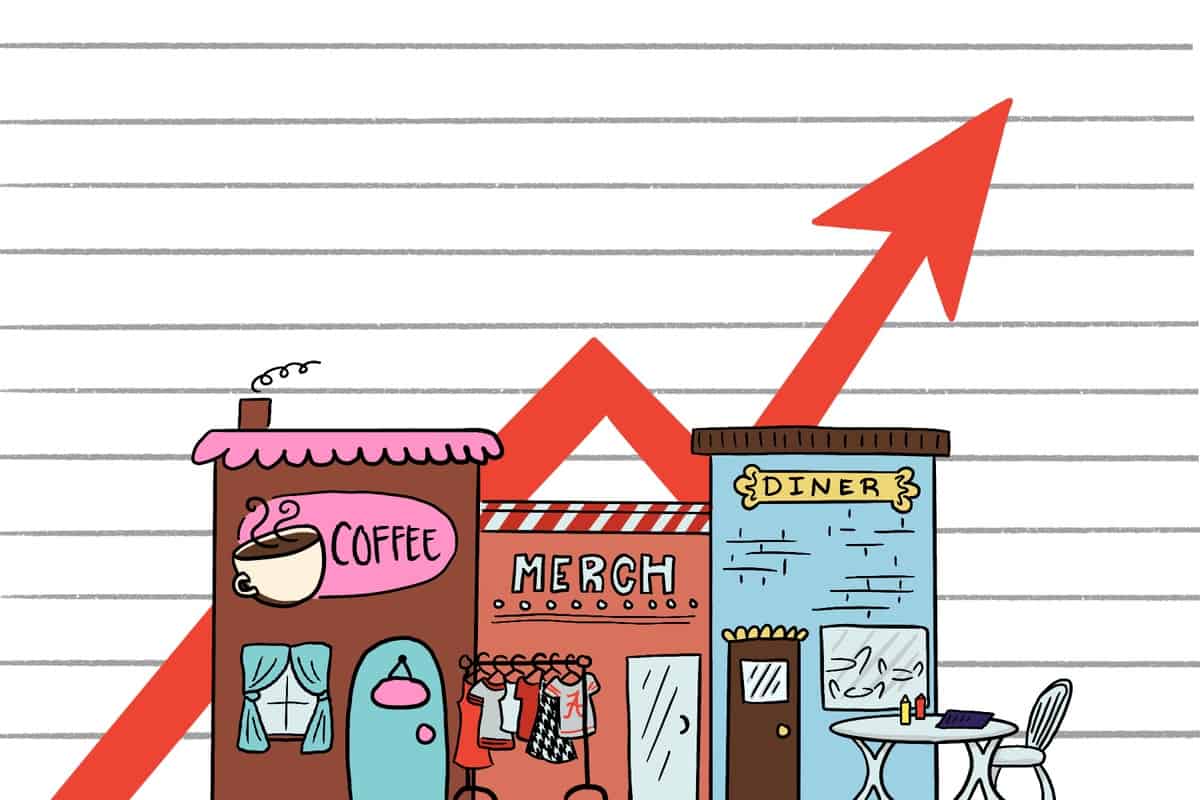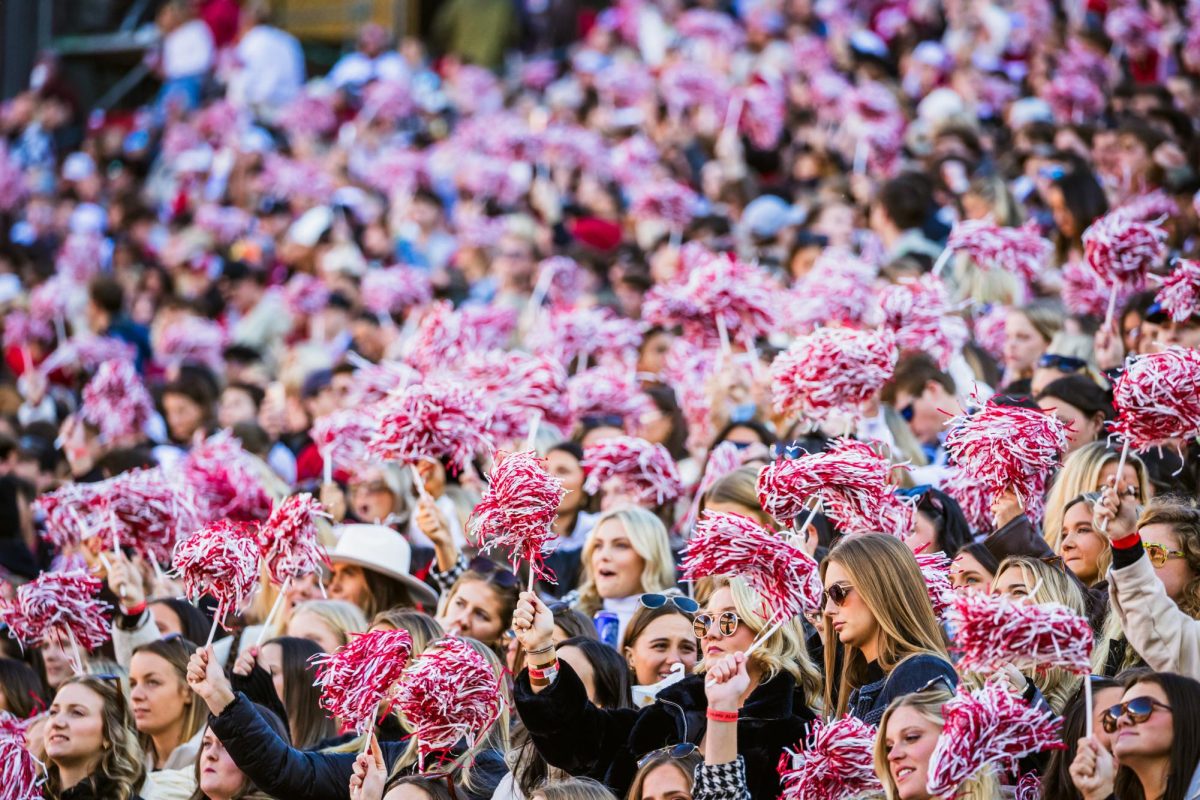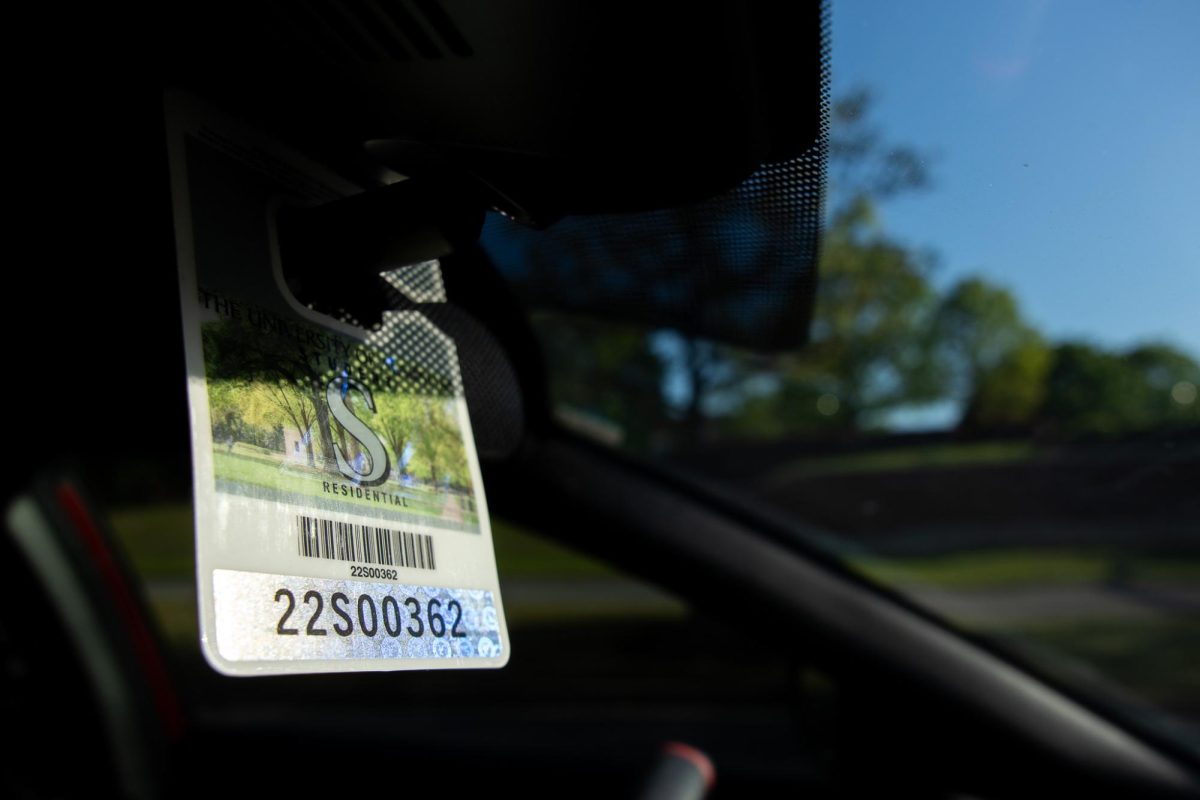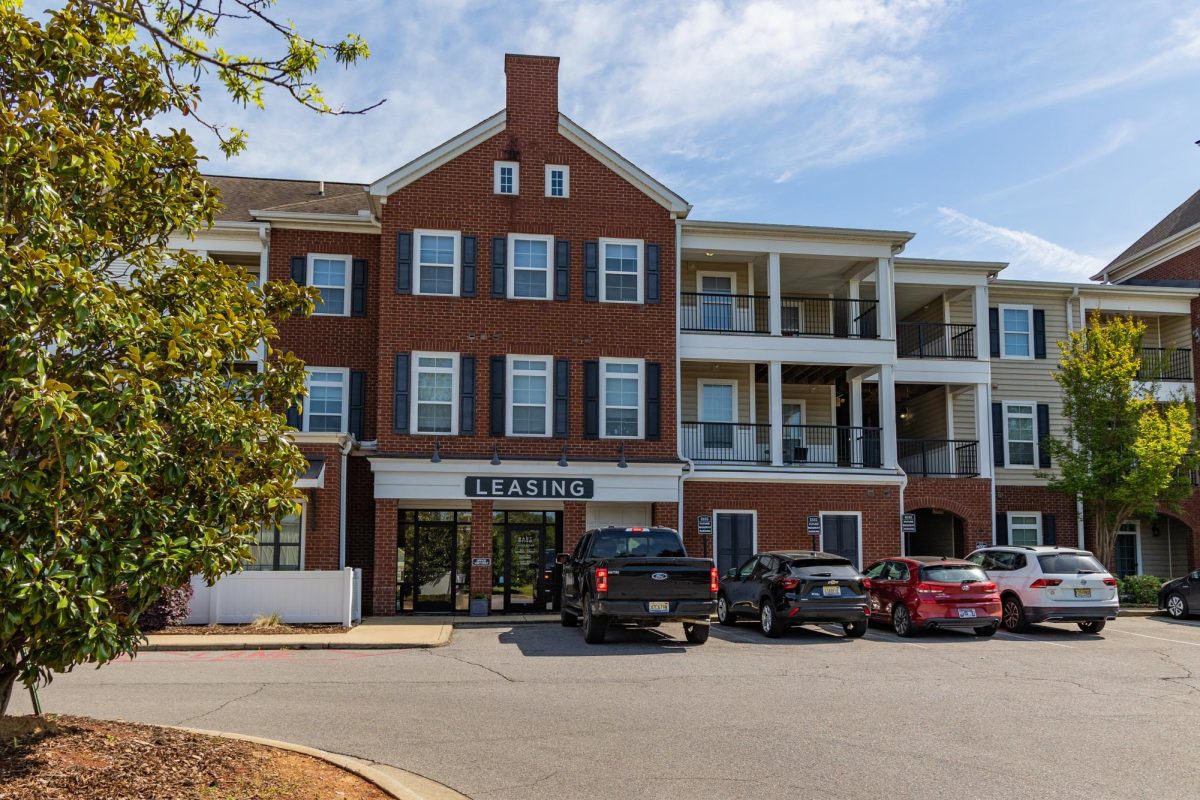The economic impact of the football season in Tuscaloosa cannot be ignored.
In 2022 tourists spent $895 million, with each home game weekend that year bringing in $20 million to $25 million on average.
Not only do game days completely change the atmosphere of Tuscaloosa, but they also leave a lasting effect on businesses on the Strip.
However, the season can pose many challenges for business owners, and for some, the surge in game day sales is necessary to keep their businesses afloat throughout the summer and academic breaks.
“Football season absolutely catapults us to another level as far as an increase in the sales and stuff,” said Tiffany Lewis, the current manager at the Publix location on the Strip.
She said that part of managing a store like Publix during home game weekends is knowing how to prepare your stock to make sure you don’t run out.
Lewis also said that students, families, alumni and fans start getting into town on Friday afternoons and stay throughout the weekend. She said Publix usually earns an extra $100,000-$150,000 during game day weekends.
Although overcrowding and safety concerns have created an ongoing debate surrounding business closing times, local bars receive a boost from game day weekends.
Daniel Shannahan, the general manager of Hoppers Corner Bar, described University-related tourism as “the lifeblood of this town.”
Although Hoppers has a smaller occupancy and many local patrons, Shannahan has worked at other bars in Tuscaloosa where the approximately seven annual game days make a big difference.
“In some places I’ve worked, you could pay your rent, your insurance, everything else on seven weekends, 14 days,” Shannahan said.
Chris Coleman, a co-owner and general manager of Unique, said that although his bar is by no means dependent on game days, football helps bring in patrons.
“Game day is really good for the city,” Coleman said. “The entire city takes a big bump with every hotel, restaurant, everywhere, bars, they’re all filled up.”
Jimmy Wendlandt, a junior majoring in kinesiology, has been working at BamaStuff, a small business on the Strip that sells Alabama merchandise, for the past two years.
“I know a lot of people come in. It’s kind of huge for the business,” Wendlandt said.
James J. Cochran, a professor of statistics at the Culverhouse College of Business, said that without game days, a lot of businesses would be hurt and might go bankrupt.
Rita’s Italian Ice and PJ’s Coffee are owned by Bill Getchell and share a location on the Strip. The businesses are enjoyed by students throughout the entire year, but during football season, they see a growth in sales and customers.
“We have to make sure that we have enough money to get through December and into mid-January before we get started up with students,” Getchell said. “So yeah, we really need game days to help us get through.”
Lewis expressed a similar view, saying that not having football season was “not an option” and that without it, there would be no need for the store to stay open.
Businesses saw reduced football activity early in the COVID-19 pandemic, when tailgating was not permitted on campus and the stadium was only 20% full. However, even with the pandemic going on, Alabama football boosted the travel and tourism economy.
Cochran said there are negative aspects to the boost to business brought about by Crimson Tide sports. One challenge he mentioned was preventing damage caused by overcrowding in businesses.
“Keeping a place clean, and getting it cleaned at the end of the night, is a whole different story if you have a restaurant that’s full,” Cochran added.
On game days, parking is frequently a logistical problem for employees.
“Foot traffic is absolutely welcome. Is parking a nightmare? Yes,” Shannahan said, adding that his staff sometimes has to come to work an hour or more ahead of time “just to find parking in the area.”
Safety is also a concern for some business owners.
“Of course, you got adequate police officers and all that stuff out on the street, but we don’t have a presence coming in, walking through, you know, and that’s when we have most of the issues,” Lewis said.
The increase in customers, and therefore sales, during football season, causes new owners, and even some experienced ones, to rethink strategies on how to best handle the situation.
“We have to really start looking at our plan and going over it right and fill all the paperwork out on the last week in June because the middle of July is when we need to start having an inventory increase,” Lewis said.
She added that game days require extra support from staff.
“Game days are what we call all hands on deck. Game days, man, we probably have about 30 [associates] total just on the front end,” Lewis said.
For Getchell, getting enough workers to take shifts on game days is “one of the biggest tasks” his businesses have.
“It’s pretty daunting,” Getchell said. “The amount of people that come in is triple to quadruple the amount on a regular daily basis.”
While any surge in business comes with additional challenges, many local vendors believe the benefits outweigh any logistical concerns.
“It does make it hectic, but the payoff is good enough that when you have enough business coming into town, it’s worth it to have a little bit of gridlock to make sure that you have a busy day,” Shannahan said.









